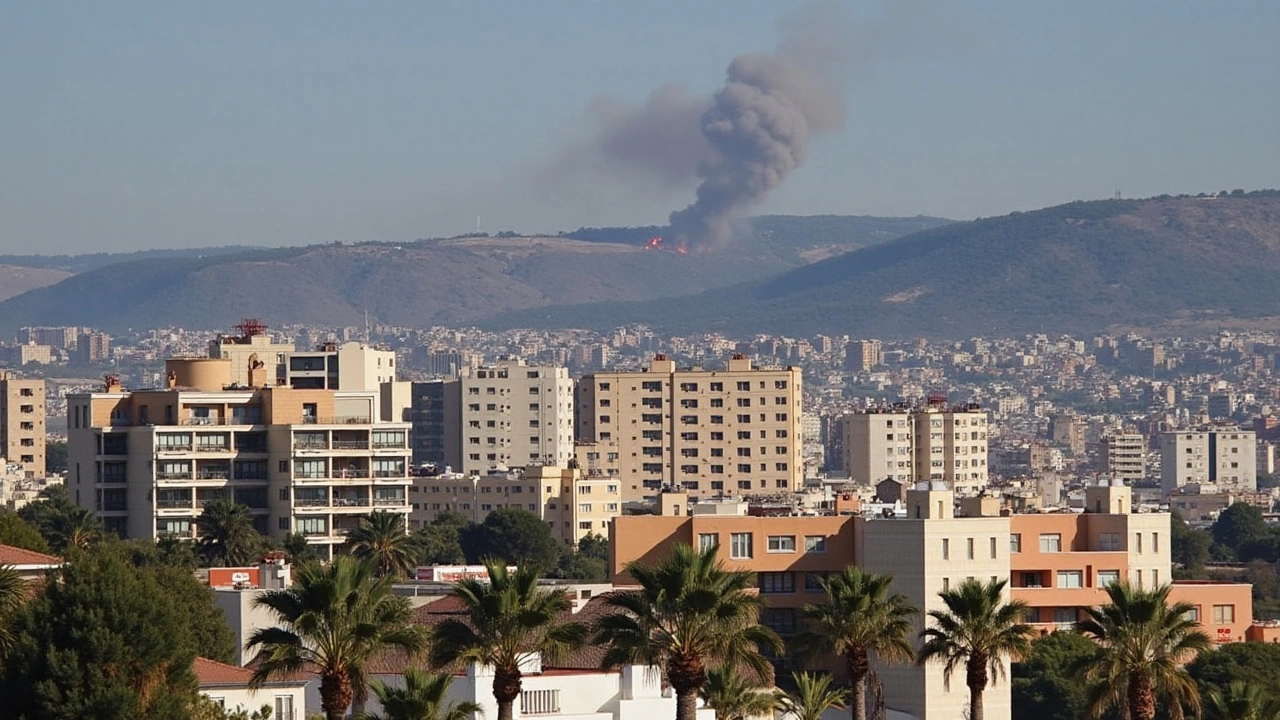France Seeks Clarification Over Attack on UN Peacekeepers
In a recent diplomatic escalation, France took the bold step of summoning the Israeli ambassador after a concerning attack on UN peacekeepers stationed in Lebanon. This incident has raised alarm bells in international circles, highlighting the fragile state of affairs in the region. The attack, which resulted in injuries to two UN personnel, occurred during fierce clashes between Israeli forces and Hezbollah militants near the border. As nations closely monitor this volatile situation, France’s response underscores the urgency of international discourse aimed at maintaining peace and preventing further conflict.
The Incident at the Heart of Concern
The confrontation unfolded against a backdrop of intense exchanges between Israeli troops and Hezbollah fighters. During the encounter, Israeli gunfire reportedly reached a UN base, injuring two peacekeepers tasked with maintaining stability in the region. Though no French soldiers were hurt, the incident drew immediate condemnation from French authorities, who emphasized that attacks on UN forces represent serious violations of international protocol. French officials, therefore, demanded an explanation from Israel, urging them to ensure such incidents do not recur. This position aligns with calls from other European nations, reflecting a growing consensus on the need for accountability.
Reactions from the International Community
Italy has already echoed France’s concerns, having summoned the Israeli ambassador for similar discussions. This united front by European powers marks a critical moment in diplomatic relations, demonstrating a joint effort to address escalations in Lebanon. The international community is acutely aware of the broader implications of increased violence, fearing that continued turmoil could destabilize the region further. By issuing formal summons, nations like France and Italy are sending a clear message: the preservation of peace and adherence to international law remain paramount.
UN's Role and Response
The United Nations has historically played a crucial role in Lebanon, deploying peacekeepers to monitor ceasefires and promote security. As such, any threat to these forces is taken seriously. The recent incident highlights the challenges faced by UN personnel operating in conflict zones where tensions run high. The UN’s commitment to peacekeeping, coupled with the support of member states, reinforces the need for compliance with international regulations. This adherence is vital not just for the protection of peacekeepers but for ensuring stability across volatile regions.
The Complexity of the Lebanese-Israeli Border
The border between Lebanon and Israel has frequently served as a flashpoint for violence. Historical tensions, coupled with political complexities, have made diplomatic resolutions difficult. Recent skirmishes involving Hezbollah, an influential militant group with significant sway in Lebanese politics, further complicate efforts for peace. Both the Lebanese and Israeli administrations find themselves embroiled in a delicate balance of aggression and diplomacy, which necessitates vigilance and international intervention to avoid deterioration.
Path Forward: Diplomacy and International Law
France's diplomatic engagement with Israel represents a proactive attempt to mediate tensions and emphasize the necessity of adhering to established international laws. By taking this firm stance, France positions itself as an advocate for peace and human rights. The emphasis on dialogue and accountability underlines the importance of multilateral approaches to conflict resolution. Nations around the world recognize the potential repercussions of unchecked aggression and are keen to avert further tragedy.
Conclusion: The Responsibility of Global Powers
As global powers engage with the unfolding situation, their role becomes even more critical. By prioritizing international dialogue and insisting on accountability, these nations help shape the narrative and maintain focus on peace. France’s actions not only respond to immediate concerns but also set a precedent for future engagement. This approach is essential in fostering sustainable resolutions, reminding all parties involved of their obligations under international law, and ultimately facilitating a path towards peace.
In these tense times, the international community stands united, reaffirming their commitment to the principles that underpin peacekeeping missions worldwide. The expectations are clear: respect for international norms must be upheld, and channels for dialogue should remain open to prevent further escalation.
